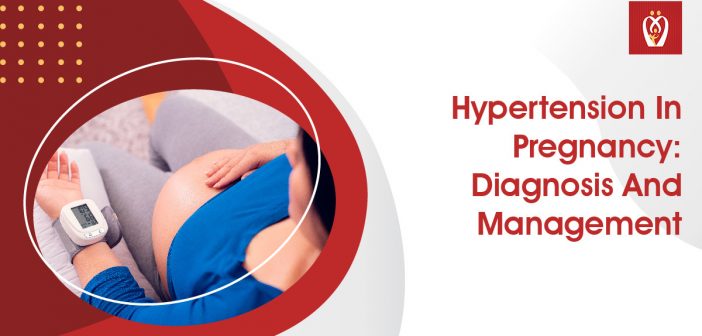Hypertension, commonly known as high blood pressure and pregnancy, is not always a dangerous combination. Hypertension during pregnancy needs close monitoring. Here’s what you should know.
What types of hypertension occur during pregnancy?
Hypertension can occur before pregnancy. However, it can also develop during pregnancy in some cases like:
Gestational Hypertension
Women having gestational hypertension develop high blood pressure after 20 weeks of pregnancy. There is no protein in the urine or other indications of organ damage. Preeclampsia develops in some women who have gestational hypertension.
Chronic Hypertension
Chronic hypertension is high blood pressure that existed before pregnancy or that occurs before 20 weeks of pregnancy. However, because high blood pressure usually has no symptoms, it may be hard to determine when it began.
Chronic Hypertension with Superimposed Preeclampsia
This condition occurs in women who have had chronic hypertension before pregnancy. They may experience worse high blood pressure, protein in the urine, or other blood pressure-related pregnancy complications.
Preeclampsia
Preeclampsia develops when hypertension occurs after 20 weeks of pregnancy and is related to signs of damage to other organ systems such as the kidneys, liver, blood, or brain. Untreated preeclampsia can cause serious – even fatal – complications for both mother and baby, such as the onset of seizures (eclampsia).
Previously, preeclampsia diagnosis was possible only when a pregnant woman had high blood pressure and protein in her urine. Now, preeclampsia is detectable without the presence of protein in the urine, according to experts.
Why is hypertension a problem during pregnancy?
Pregnancy hypertension poses several risks, including:

Decreased blood flow to the placenta
Your baby may receive less oxygen and nutrients if the placenta does not receive enough blood. Slow growth (intrauterine growth restriction), low birth weight, or premature birth can all result from this. Prematurity can cause breathing difficulties, increased infection risk, and other complications for the baby.
Abruption of the placenta
Preeclampsia increases your chances of developing this condition, in which the placenta separates from the inner wall of your uterus before birth. Severe abruption can result in life-threatening bleeding for you and your baby.
Intrauterine growth restriction
Your baby’s growth may be slow or reduced because of hypertension (intrauterine growth restriction).
May damage your other organs
Uncontrolled hypertension can harm your brain, heart, lungs, kidneys, liver, and other major organs. It is potentially fatal in severe cases.
Premature delivery
Early delivery may be needed when you have high blood pressure during pregnancy to avoid potentially life-threatening complications.
Future cardiovascular disease
Preeclampsia may increase your chances of developing heart and blood vessel (cardiovascular) disease later in life. Your risk of future cardiovascular disease is higher If you’ve had preeclampsia more than once or had a premature birth due to hypertension during pregnancy.
How will I know if I suffer pregnancy-related hypertension?
Blood pressure management is a crucial part of prenatal care. If you have chronic hypertension, your general practitioner will consider the following categories when measuring your blood pressure:
Elevated blood pressure
Elevated blood pressure is a systolic pressure of 120 to 129 millimeters of mercury (mm Hg) and a diastolic pressure of less than 80 mm Hg. High blood pressure tends to worsen over time unless you control the blood pressure.
Stage 1 hypertension
A systolic pressure of 130 to 139 mm Hg or a diastolic pressure of 80 to 89 mm Hg is considered stage 1 hypertension.
Stage 2 hypertension
Stage 2 hypertension is a systolic pressure of 140 mm Hg or higher or a diastolic pressure of 90 mm Hg or higher.
If the blood pressure is above 140/90 mm Hg after 20 weeks of pregnancy and documented on two or more occasions without organ damage, it’s considered gestational hypertension.
Is taking antihypertensive drugs during pregnancy safe?
Some blood pressure medications are considered safe during pregnancy. But one should avoid angiotensin-converting enzyme (ACE) inhibitors, angiotensin II receptor blockers, and renin inhibitors.
However, treatment is crucial. High blood pressure increases your risk of a heart attack, stroke, and other serious complications. It can also be hazardous to your baby.
Your GP will recommend the safest medication at the appropriate dose if you need medication to control your blood pressure while pregnant. Take medicine exactly as directed. Do not discontinue or adjust the medication on your own.
What can I do to lower my chances of complications?
Taking care of yourself is the best way to care for your child. For example
Keep your prenatal appointments in check
Throughout your pregnancy, make regular visits to your general practitioner. You can book a GP appointment real quick using the Nurturey pregnancy app.
Follow the directions on your blood pressure medication strictly.
Your GP/midwife will prescribe the safest medication at the appropriate dosage.
Stay active
Follow your GP/midwife’s recommendations for physical activity.
Maintain a healthy diet.
If you require additional support, request to speak with a nutritionist.
Understand what is prohibited.
Avoid using tobacco, alcohol, and illegal drugs. Before taking over-the-counter medications, consult your GP.
Your GP may advise you to take low-dose aspirin (81 milligrams) daily late in your first trimester if you have a history of hypertension.
What should I do to get ready for my pregnancy?
If you have high blood pressure, make an appointment with the health care provider who will be in charge of your pregnancy. Meet with other health care providers, such as your primary care physician or cardiologist. They’ll assess how well you’re managing your hypertension and consider any treatment changes you might need to make before becoming pregnant.
Your GP may advise you to lose weight before attempting to conceive if you are overweight.
About the Nurturey Pregnancy App
The PinkBook by Nurturey is a “digital substitute” for the NHS’s Red Book. Pregnant women and parents can use the PinkBook to access their child’s health records, view upcoming health checkups, and get trusted information about their stage in the parenting or pregnancy journey from the NHS. If you are pregnant and have concerns, you can use the Nurturey pregnancy app to schedule an appointment with your GP or midwife. You can also schedule appointments, refill prescriptions, and communicate with your GP/midwife.







